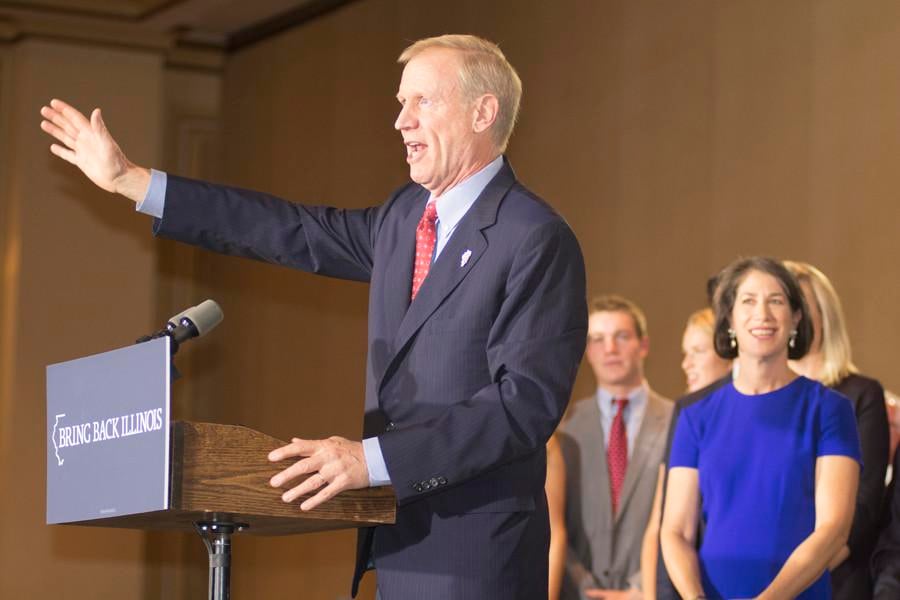Gov. Bruce Rauner approves release of fuel tax revenue to local governments
Daily file photo by Paige Leskin
Gov. Bruce Rauner speaks to a crowd of supporters on Nov. 4, 2014, the night he was elected governor of Illinois. Rauner signed a bill this week releasing motor fuel tax revenue to local governments, including Evanston.
December 10, 2015
Illinois Budget Crisis
Evanston will soon receive motor fuel tax revenue withheld by the state for more than five months during the Illinois budget impasse after Gov. Bruce Rauner signed a bill Monday releasing the funds to local governments.
The city has not received fuel tax revenue from Springfield since the state started its new fiscal year without a budget in July, putting into question how it would pay some city employees in 2016. Evanston uses motor fuel tax revenue to fund public works staff salaries and street maintenance.
The city is estimated to receive about $900,000 in fuel tax revenue from the state for the second half of this year, Evanston’s chief financial officer Marty Lyons said.
City Council voted last month to pass a resolution urging Illinois politicians to work to release this particular revenue source, among others, to local governments. City manager Wally Bobkiewicz said local government leaders’ collective response is increasingly affecting decisions at the state level.
“The voice of all the mayors in Illinois has certainly grown in the past few years,” Bobkiewicz said. “It absolutely has an impact.”
The Illinois Senate passed the bill on Monday and sent it immediately to the governor for his signature. In addition to paying communities nearly $286 million in fuel tax revenue, the bill authorizes the release of revenue for casino gaming, funding for emergency service centers and payments to Illinois Lottery winners. Lottery winnings of over $600 began to be withheld in mid-October when the Illinois Lottery’s check writing account was emptied and the state did not have legal authority to replenish the funds without a 2016 budget.
The bill includes a slew of other payments to institutions other than local governments, including domestic violence shelters, veterans’ homes and the secretary of state’s office.
Although the release of the fuel tax funds will help balance Evanston’s 2015 budget, Bobkiewicz said the bill does not make him hopeful of a resolution to the budget impasse that has lasted more than five months. The political stalemate will hopefully see a conclusion when the General Assembly reconvenes at the beginning of January, Bobkiewicz said.
“This helps us end our 2015 fiscal year feeling better,” he said. “But a question mark still hangs in the air for 2016.”
Email: [email protected]
Twitter: @juliarebeccaj


